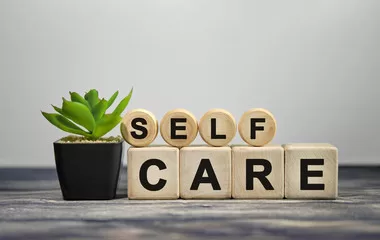Why Prioritize Mental Health and Self-Care as a Daily Priority?
Mental health and self-care shouldn’t be reserved for when things become overwhelming. It’s important to notice if your sleep, appetite, and mood have changed, as these can be early signs that your well-being needs attention. By learning to emotionally regulate and address life’s stressors before they take a significant toll, you can prevent bigger issues down the road. Small acts of self-care, practiced daily, help create lasting habits and remind you of the importance of maintaining your health. With over 75% of adults experiencing daily stress, it’s essential to prioritize your well-being. Neglecting self-care can lead to anxiety, depression, and even physical health problems. Prioritizing self-care improves mental health, self-esteem, and overall happiness.
Strategies to Implement
1. Mindfulness
Mindfulness involves paying attention to the present moment without judgment. It can be practiced through meditation or small moments throughout the day. To start, take a few deep breaths, tune into your senses (what you can hear, smell, or feel) and recognize your thoughts as passing, rather than identifying with them. This practice helps create a sense of calm, especially when stress triggers the fight-or-flight response.
2. Nature
Take a walk in your neighbourhood trail, reach out to a friend and ask to go on a walk. Spending time in nature has been shown to reduce stress, improve mood, and enhance cognitive function.
3. Exercise and Movement
Physical movement, whether it’s a workout class, yoga, or walking, is vital for both physical and mental health. Even committing to just 20 minutes of walking 3-5 times a week can boost endorphins, improve circulation, and help maintain a balanced state.
4. Connecting with Yourself
In the busyness of life, it’s easy to lose connection with ourselves. To stay grounded, try a daily 5-minute check-in: ask yourself, “How am I feeling? What can I do today to support myself?” Practices like breath work, meditation, or a walk can help center your mind and body.
5. Social Connections
Reach out to a friend or family member just to say hi and see how they’re doing. Meaningful social connections are an important part of a healthy lifestyle, just like diet, exercise, and sleep. Consider joining a local meetup group related to your interests as a way to expand your social circle. Social connection should be considered a daily self-care habit. Engaging in positive, supportive interactions can help boost brain health and emotional well-being.
6. Nourishing Foods
Incorporate more whole foods into your diet, such as vegetables, fruits, nuts, and whole grains. Start small, adding a serving of veggies to each meal. Be mindful of eating as a coping mechanism during stress, and explore healthier alternatives to support your emotional well-being.
7. Sleep Hygiene
Prioritize sleep by creating a restful environment, such as keeping your phone away before bed. Aim for 7-9 hours of sleep each night, as this allows the body to repair itself, recharge the immune system, and regulate emotions, all of which are crucial for mental well-being.
Real-Life Example
After years of pushing herself through a demanding corporate job and caring for her sick mother, Mia realized her constant stress and exhaustion were affecting her health and relationships. One day, after breaking down at work, she decided to prioritize her mental health. She started taking short walks during her break, practicing 10 minutes of meditation each morning and joined a local support group. These small changes helped Mia feel more balanced and gave her the strength to handle her responsibilities more clearly and calmly.
When to Seek Professional Support
It’s important to seek professional support when you notice small changes in your sleep, diet, or relationships—especially if these symptoms interfere with your daily life functioning. A therapist can provide the guidance and support needed to address these challenges.
Conclusion
Prioritizing mental health and self-care daily is essential for maintaining overall well-being and preventing stress from escalating. By integrating simple practices like mindfulness, exercise, and healthy eating, you can improve your quality of life. Remember, taking small steps consistently can lead to lasting benefits, and seeking professional support when needed ensures you’re not navigating challenges alone.
References



